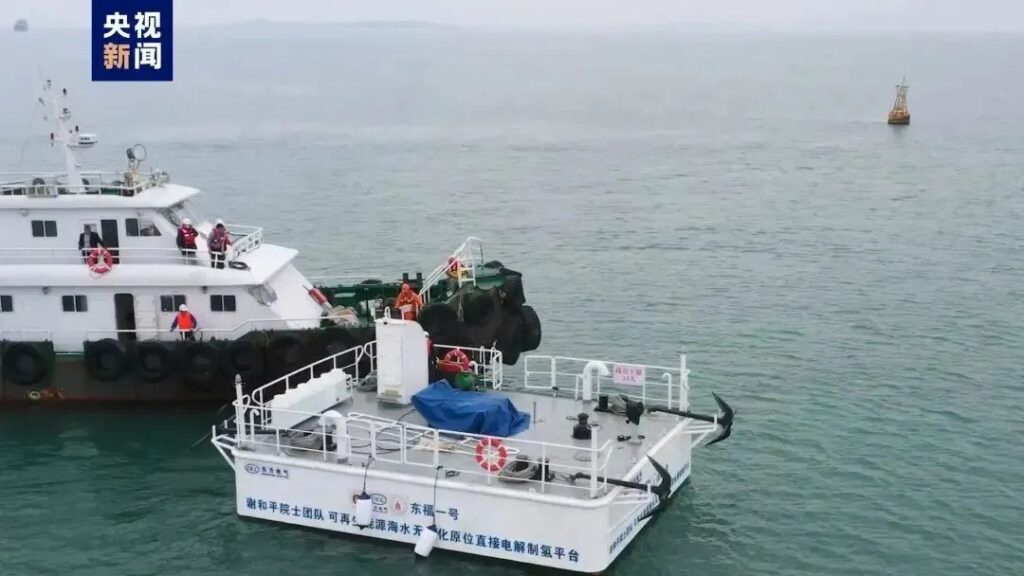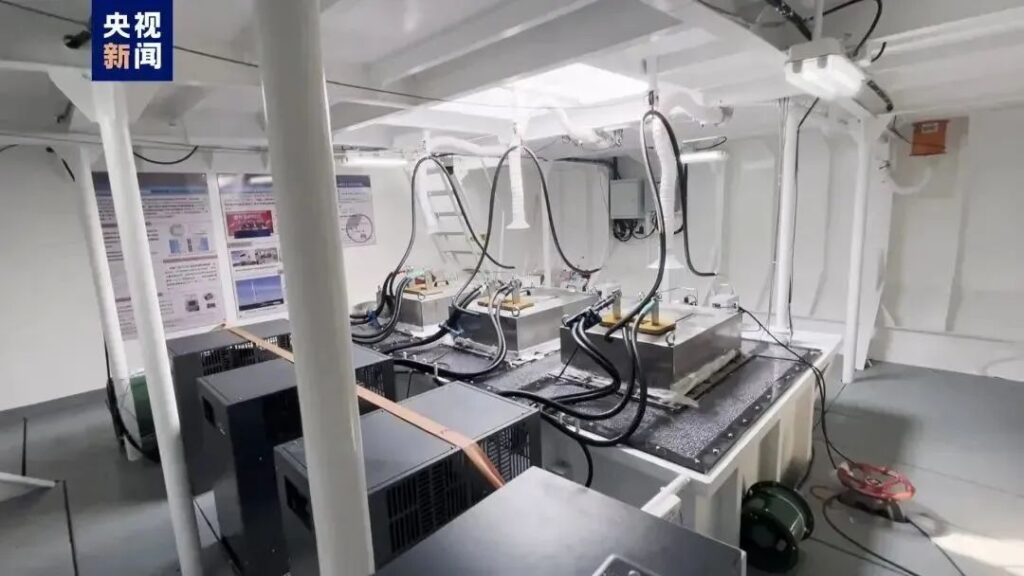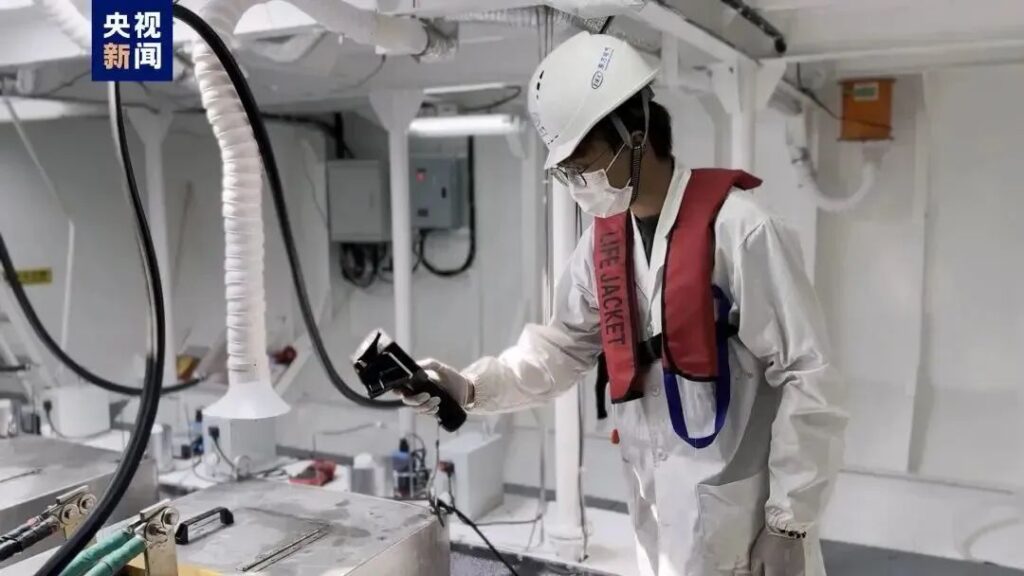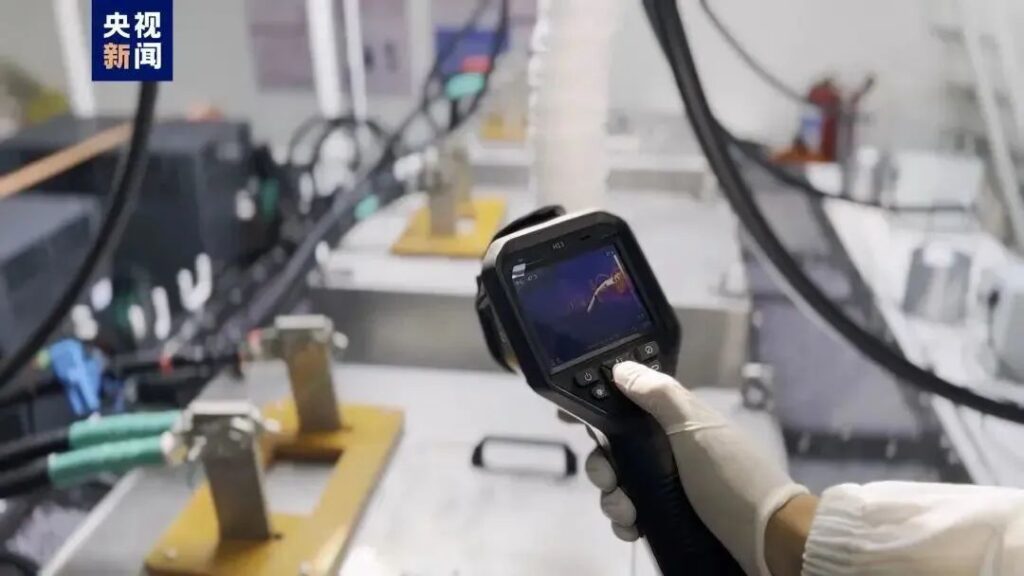Recently, the world’s first offshore pilot test of in-situ direct electrolysis of hydrogen production technology for offshore wind power without desalination of seawater confirmed by a group of experts from the Chinese Academy of Engineering. After an on-site inspection at Xinghua Bay offshore wind farm in Fujian, China.

The offshore pilot test
The offshore pilot test conducted in mid to late May at Xinghua Bay Offshore Wind Farm in Fujian Province. This time, the world’s first floating offshore hydrogen production platform “Dongfu No.1”. It is jointly developed with renewable energy, was used. While it integrates in-situ hydrogen production, intelligent energy conversion management. The safety detection and control, loading and unloading, and other systems in one. It has operating stably for more than 240 hours in a row after being tested by the ocean environment such as 8-level wind, 1-meter high waves and heavy rain.
The ocean is the largest hydrogen mine on the earth, and asking for water from the sea is an important direction for the future development of hydrogen energy. However, the composition of seawater is complex, containing more than 90 kinds of chemical elements and a large number of microorganisms and suspended particles. It brings many technical bottlenecks and challenges such as strong corrosiveness and toxicity, catalyst deactivation and low electrolysis efficiency.

In this regard, if we use seawater as raw material to produce hydrogen indirectly. We rely heavily on large-scale desalination equipment, and the process complicated and takes up land resources. It pushes up the cost of hydrogen production and the difficulty of engineering construction. As for the direct electrolysis of seawater to produce hydrogen. A lot of research has carried out by famous research teams at home and abroad. However, for nearly half a century. There is no breakthrough theory and principle to completely avoid the influence of complex components of seawater on the electrolytic hydrogen production system.

In conclusion
Xie Heping, an academician of the Chinese Academy of Engineering. He said that the in-situ direct electrolysis hydrogen production technology without desalination of seawater. It has jumped out of the scope of traditional chemistry in principle. Driven by the physical mechanics of the vapor pressure difference, it completely isolates the influence of more than 90 complex elements in seawater. And microorganisms on hydrogen production by electrolysis of water. This breaks the world’s traditional model of relying on pure water to produce hydrogen. Direct production of hydrogen from inexhaustible seawater resources. It combined with offshore wind power generation technology, will change the global energy development path in the future.
